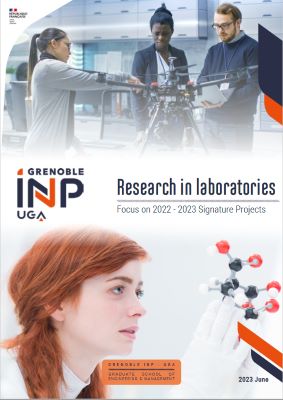
Are you familiar with PCBs? PCB stands for “printed circuit board”, a component found in the majority of electronic devices, and especially in consumer devices. Made from petro-sourced materials (such as epoxy resin with glass fibres, or other fluorinated materials depending on the application), these boards are difficult to recycle and, as a result, are very seldom recycled.
The idea behind DESIRE4EU, a European project run by the European Innovation Council (EIC), is to design electronic boards (printed circuits) that are devised from the outset for optimum recycling in order to reduce their environmental impact. All this will be achieved by replacing conventional materials with bio-sourced products, while using the same industrial processes.
Local, greener technology

The IGE laboratory in Grenoble is focusing on the recycling of these boards, and particularly the copper – a critical metal – they contain using bio-inspired processes. To reduce the quantities of acid and energy required to separate the materials, researchers are developing processes using bacteria that develop in copper mines, which serve to lower the temperature of the metal extraction process and reduce the quantity of acid required, as the micro-organisms generate their own acids. The €4 million allocated to the project will fund the development of a proof of concept at a scale of a few centilitres. Other partners are also involved in the project at different levels (see list).
The market for PCBs, which are used in a wide range of sectors from consumer electronics, the automotive industry and telecoms to medical, IT, aeronautics and defence applications, amounts to a total of almost €100 billion worldwide, including almost €13 billion for consumer electronics alone. At present, almost all PCBs come from China, with Europe producing just 2.5%. However, according to an analysis by Alba Elettronica, flax-fibre-based technology could cover all European requirements for basic circuits and could help to increase the European industry's share of the PCB market, while being greener than current epoxy-based technology. Watch this space.
* DESIgning and REcycling sustainable Electronic boards for a EUropean circular economy
**The consortium brings together eight academic and private partners from five European countries, including two SMEs and one start-up:
Coordination: Grenoble INP-UGA, CNRS, UGA and INPG ENTREPRISE SA, BUDAPESTI MUSZAKI ES GAZDASAGTUDOMANYI EGYETEM, MESHINING ENGINEERING, ARDUINO AB, Institut SINANO Association, Université Catholique de Louvain, ABchimie, ALBA ELETTRONICA SRL



